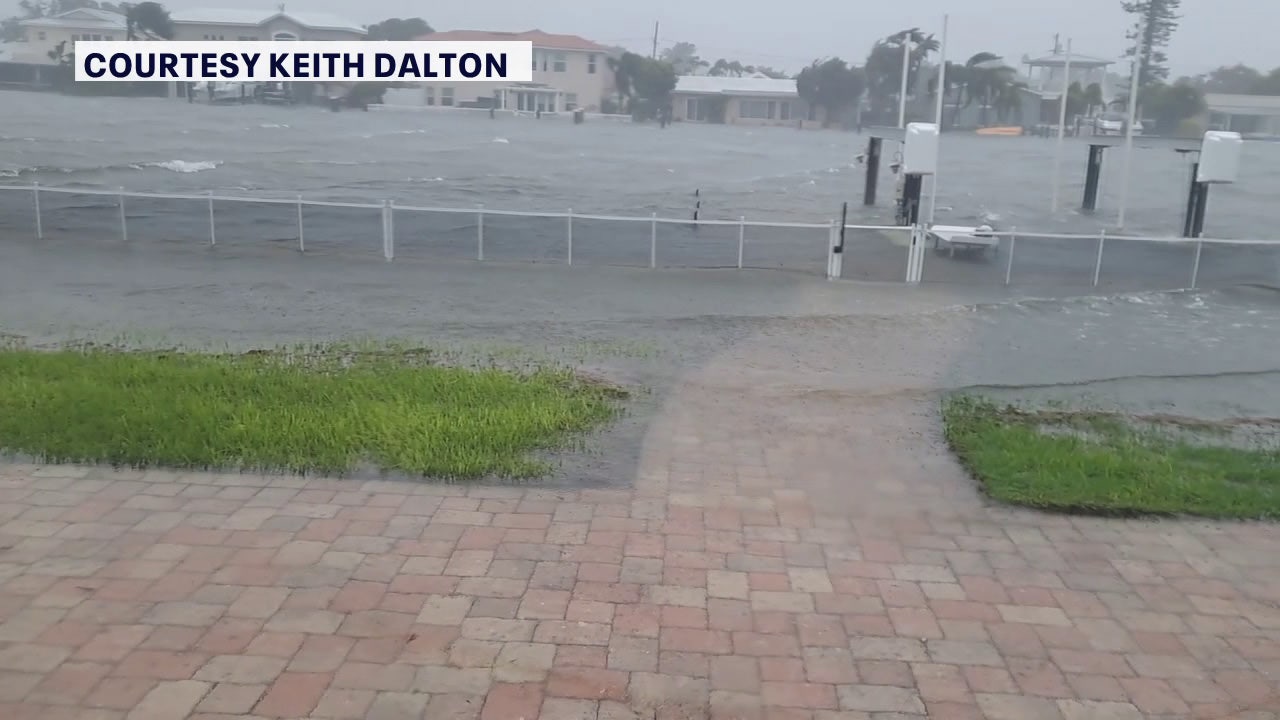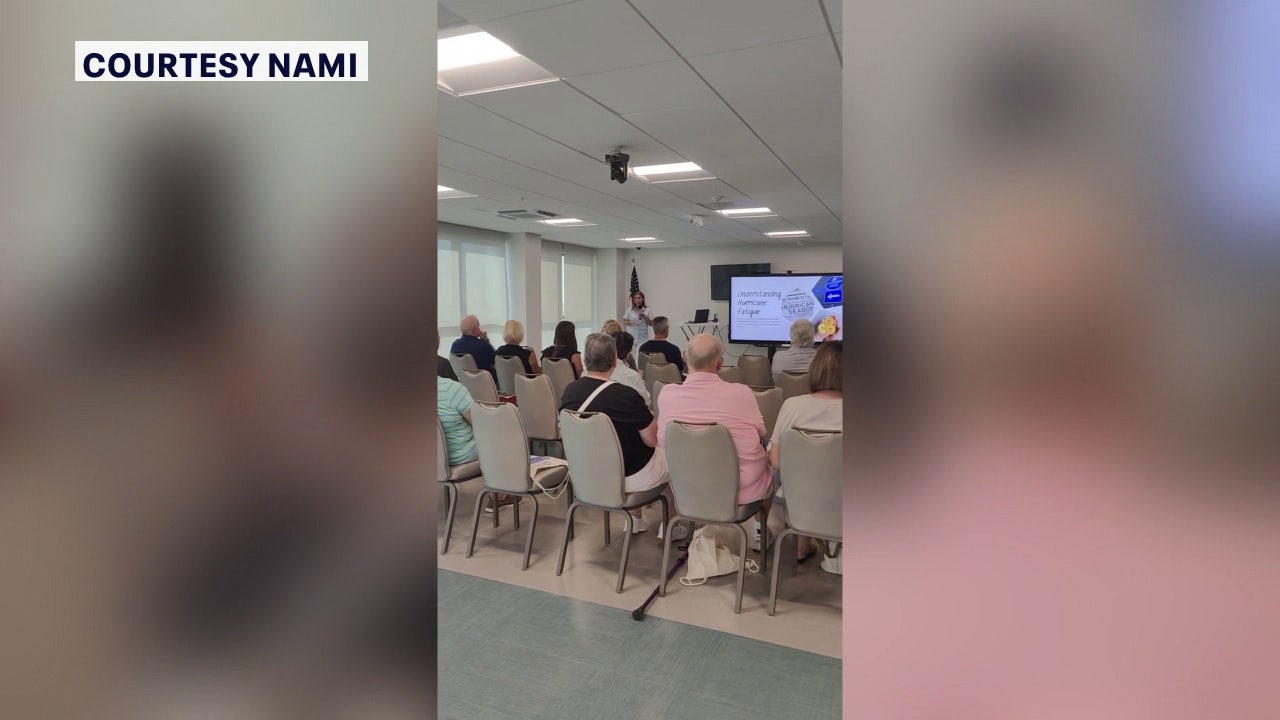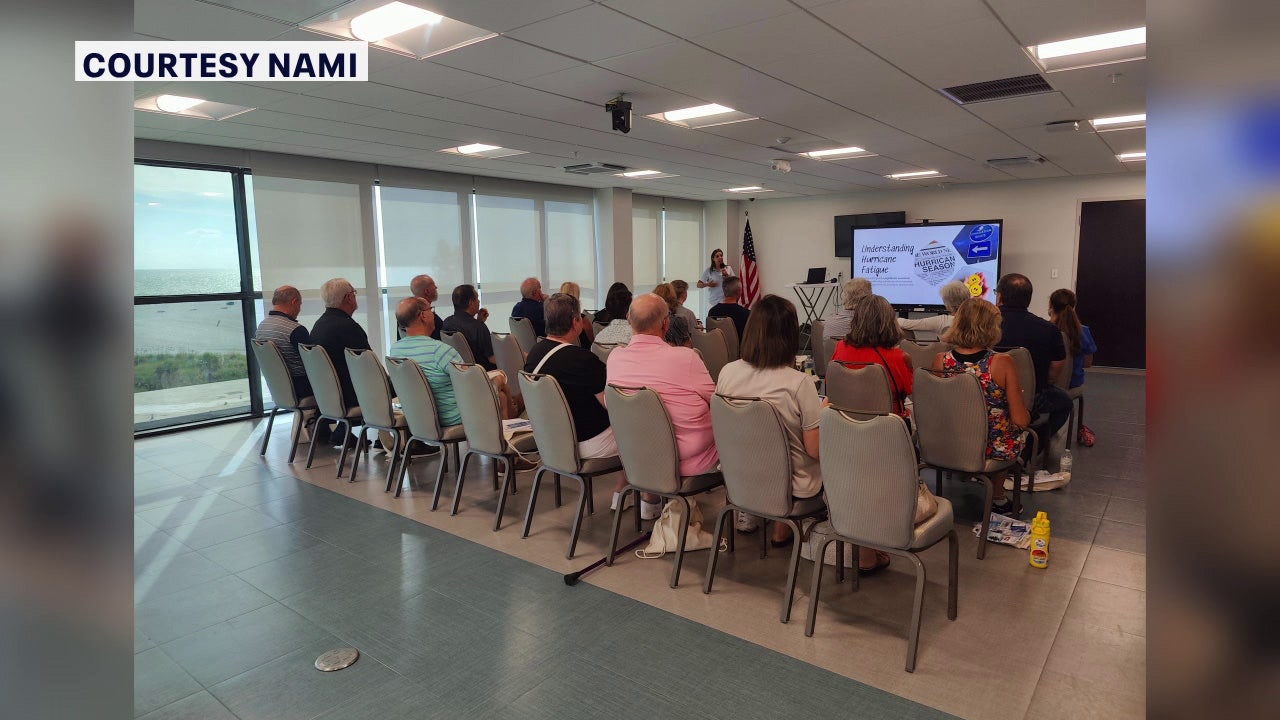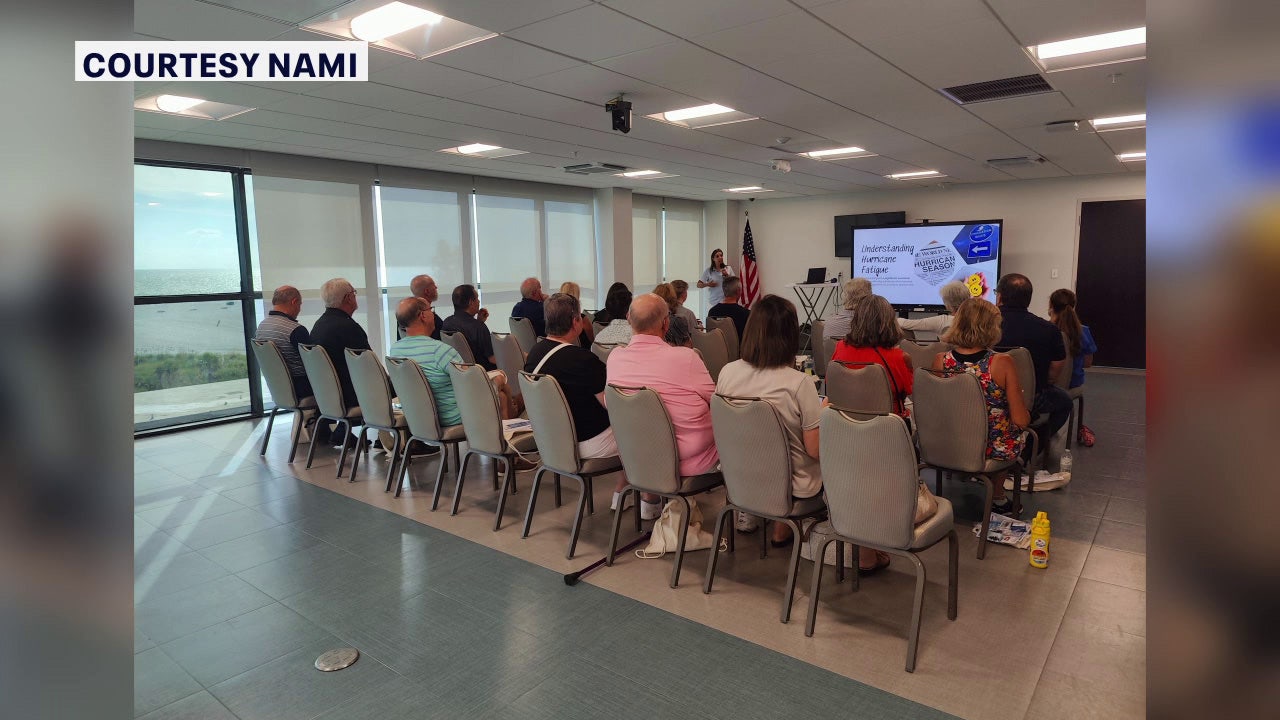- They held the first meeting in July, focusing on understanding the symptoms of hurricane fatigue.
- NAMI also connects community members to resources to help tackle the topic in a healthy manner.
TREASURE ISLAND, Fla. – Almost one year ago, Hurricane Helene’s storm surge destroyed Keith Dalton and his wife’s home on Treasure Island.
Local perspective
“It was terrifying,” he said. “When it [the water] went from my seawall to my back door in 20 minutes, that’s when we grabbed the dogs, and by the time we were out of the house, the water was already coming over the hood of my SUV,” Dalton said.
READ:Thousands denied in first round of Florida’s new home elevation program
They were able to make it to a friend’s home on higher ground nearby. That day, though, and the weeks and months that followed, still haunt him.
“Moving your furniture out to the front curb and seeing all your worldly possessions out there … it’s still a trigger event. You can still drive by some of these homes, and you’ll smell the smell coming out of it, and it just brings back horrible feelings,” he said.
Dalton is far from alone. Scars from last year’s storms are still visible in Treasure Island.

MORE: Crews install AquaFence around St. Pete’s most critical lift station
Big picture view
Dalton is on Treasure Island’s Life Intervention Focus Team, known as LIFT. The non-profit focused on helping connect vulnerable residents, like the homeless and the elderly, with resources when it first started in 2019. Since Hurricanes Helene and Milton, though, they’ve expanded.
“We’ve had to expand our focus more into what we’re really calling hurricane fatigue. A lot of people are suffering anxiety, depression, loneliness. Half our island isn’t even back yet,” Dalton said.
LIFT and the Pinellas chapter of the National Alliance on Mental Illness (NAMI) teamed up in July for the first meeting to talk about the topic. According to Camille Hebting, the deputy director at NAMI Pinellas County, she met a Treasure Island resident at one of their community events late last year.
“In having a conversation with him, we realized that some of the communities that were affected by the hurricanes were really going through more than just kind of the physical recovery, which is to be expected,” she said. “Often, after the physical recovery is kind of done and over with and often people are, you know, tired of talking about it, we forget about the emotional part of the recovery.”
READ: Meet the CERT volunteers who jump into action after Florida storms
“We wanted it to be a piece of the puzzle to help folks feel supported and understanding the symptoms and that some of the symptoms they were experiencing were linked to that trauma response from the storms last year, but also support them with resources on how do we move forward in a positive manner,” Hebting said.
 Dig deeper
Dig deeper
Those symptoms can include fear of future storms, irritability and isolation, among others, Hebting said.
“It made me feel like, ‘hey, I’m not alone, and I’m not the only one suffering from this,’” Dalton said about attending the meeting in July.
NAMI also connects community members to resources, like therapists, for free.
“Folks are experiencing potentially triggers and those triggers can come in different forms. They can come in the form of, you know, hearing a certain word like hurricane season, or seeing certain things on social media or on the news. What’s important is that they take care of themselves in whatever way that they feel is more fitting,” Hebting said.
MORE: Report: Cost keeps many from preparing for hurricane season, insurance experts focus on key steps
She said that can include talking to a therapist, talking to a trusted friend or family member, doing something that makes you happy, and/or spending time in nature.
“It is essential that we have these conversations. They are difficult conversations, because they bring up a lot of feelings and emotions, but they are very, very vital conversations and vulnerability is really hard, but it is the piece that kind of ties us back together,” she said.
 What’s next
What’s next
Dalton said they’re trying to hold the hurricane fatigue meetings once a month. They’ll post the schedule on LIFT’s website.
He said they’re also rolling out the Neighbor for Neighbor program. It’s like a neighborhood watch program where everyone looks out for each other.
“If their newspapers are piling up in the driveway or the grass hasn’t been mowed, just go up, knock on the door, see if they’re okay, introduce yourself. And then we have ambassadors in each of the major neighborhoods where they can call to help get whatever services we need to provide to them,” he said.
What they’re saying
“I’m very fortunate in that I have great neighbors all up and down the street, and we have turned into our own kind of support group. When we get together, we can at least talk openly and not be afraid to say, ‘hey, look, I’m really anxious about this,’ or, ‘I’m having a bad day,’” Dalton said.
READ: Bay Area firefighters warn of electric vehicle fires ahead of height of hurricane season
“Sometimes we go over to the neighbor’s house and just break down, and they would come over and break down and we just kind of hug it out. That’s what this Neighbor for Neighbor program is kind of doing, is hoping people will create these support groups out there,” he said.
What you can do
Pinellas’ NAMI chapter also offers its resources to anyone in need in the county. You can find more on its website. You can also get connected to mental health resources through Pinellas County’s CARE program by calling or texting “CARE” to 1-888-431-1998, or visiting its website.
Pinellas County’s Care About me is not a crisis line. For mental health emergencies, call 911. If you need emotional support, call 988.
FOX 13’s Kailey Tracy spoke with a LIFT board member and the deputy director of NAMI Pinellas County for this story.

